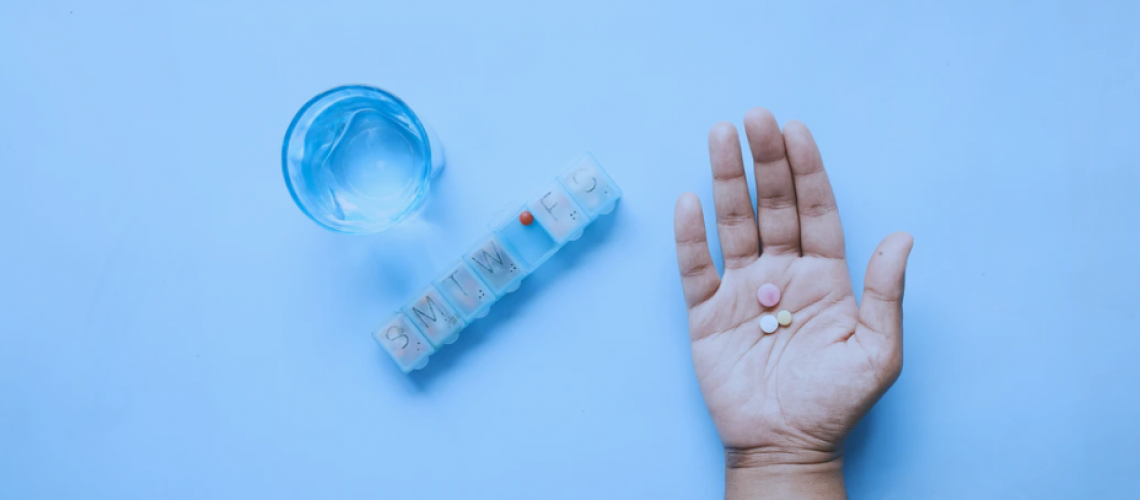
The management of pain is important to improving quality of life. Pain – chronic or acute – keeps patients from doing the things they enjoy with the people they enjoy. It has a profound affect on decision-making and mood while also affecting sleep and eating patterns. Pain can also cause physiological symptoms such as an increase in blood pressure and heart rate. Though Opioid-based medications have been used in the treatment of pain, the negative consequences have become an emergency.
A recent study reveals that deaths from opioids alone soared 30 percent in 2020 – 69,710 fatal overdoses. In 2017 The U.S. Department of Health & Human Services, declared opioid abuse a public health emergency. More than 2 million Americans are addicted to opioid drugs including: morphine, oxycodone, codeine and hydrocodone.
Hitherto this point, the standard protocol of traditional pain management, has comprised of medications such as NSaids and opioids. This reliance on pharmaceutical drugs has led to addiction. The sad irony is that it has also led to very little long-term relief. Evidence now
shows that the long-term use of opioids for pain management only reduces pain, on average, by approximately 30 percent.
Chronic pain is one of the most common reasons that patients seek care. Interventional pain management is a holistic approach that aims to relieve and/or reduce pain while simultaneously improving the quality of life of the patient through minimally invasive techniques. The optimum treatment for pain is a “multimodal” therapy plan.
Physicians and pain specialists are now looking beyond opioids for effective methods of treating pain. Non-Opioid medications and even non-drug therapies are currently the preferred treatment. This multidisciplinary approach is an ideal solution for patients looking for traditional pain management alternatives while also avoiding the risks that come with opioids.
With traditional pain management, therapies do not always address the root cause of the pain, rather, it looks for ways the body can better handle pain signals through medications. Interventional pain management “intervenes” in the pain cycle with the aim of actually blocking pain from transmitting through the body. These pain management alternatives make use of minimally invasive methodologies directly at the source of the pain.
Effective management of pain depends upon obtaining an accurate diagnosis of the injury or source of the pain. Leon Anijar, MD, one of Miami’s foremost Pain Physicians is able to provide his patients with a holistic approach to pain management. Dr. Anijar evaluates and performs an in-office exam of each patient before devising a customized, comprehensive treatment plan for each patients’ differing needs. Dr. Anijar is able to offer expertise in pain management therapies that are low-risk and high-reward, and are compatible with a growing variety of pain sources in both the spine and joints.
The Florida Department Of Health requires physicians to inform the patient of available non-opioid alternatives for pain treatment which may include non-opioid medicinal drugs or drug products, as well as interventional procedures or treatments.
Some examples of these non-opioid reliant treatment methods include: Spinal Cord Stimulation
Vertiflex
Electrostimulation, nerve blocks or implantable drug delivery systems.
Steroid injections such as trigger and facet joint, and epidural injections. Infusions able to deliver pain medication directly to an affected area Neuromodulation
Ablation
Intrathecal Drug Delivery systems Physical therapy
The burgeoning field of Regenerative Medicine which includes Stem Cell and PRP therapies that use the patient’s own biological materials to regenerate new tissue and stave off pain.
Chronic pain is a debilitating medical condition and one of the most complex to manage. The urgency of a patients’ needs combined with on-going leading edge research into non- opioid pain management is an ever-growing field. All of these cutting edge pain therapies offered by Dr. Leon Anijar work to decrease the possibility of needing surgical intervention or the use of potentially addictive medications.


